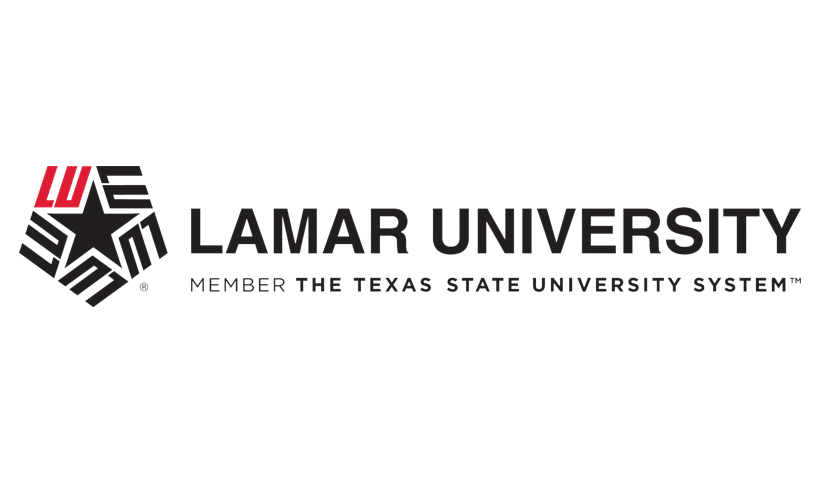Licensed Graduate Professional Counselor (LGPC) is a title often used in specific regions as an initial licensure for professionals entering the counseling field. It’s a key step for aspiring counselors, particularly those working toward independent licensure, such as a Licensed Clinical Professional Counselor (LCPC) designation. For those pursuing a counseling career, understanding the LGPC role can clarify how this designation supports the path toward full licensure, professional independence, and career growth.
This guide will cover what an LGPC is, how it compares to other credentials, the educational pathway for aspiring LGPCs, and career and salary insights to help prospective students understand what to expect.
What Is an LGPC?
A Licensed Graduate Professional Counselor (LGPC) is an entry-level credential granted to individuals who have completed a master’s or doctoral degree in counseling but have not yet acquired the supervised experience required for full licensure as an independent practitioner. Primarily used in Maryland and some other regions, the LGPC allows counselors to work under supervision while gaining the clinical hours necessary for higher credentials, such as the Licensed Clinical Professional Counselor (LCPC) designation.
LGPC Responsibilities and Limitations
While LGPCs perform many of the same counseling tasks as fully licensed counselors, they must do so under the guidance of a licensed supervisor. This oversight is designed to provide new counselors with mentorship and support as they build practical skills in real-world settings. LGPCs work with clients across various settings, including mental health clinics, hospitals, private practices, and schools, but are not permitted to operate independently.
Consider a Featured Online Counseling Program
| School and Program Information | Online Program? Entry Requirements | Course Information | |
|---|---|---|---|
|
Walden University
MS in Clinical Mental Health Counseling
 CACREP Accredited CACREP Accredited |
✔ Online
GRE scores not required
|
Prepare to become the competent, compassionate counselor you were meant to be with Walden's CACREP-accredited MS in Clinical Mental Health Counseling program.
|
Learn More |
|
Northwestern University
Online MA in Counseling
 CACREP Accredited CACREP Accredited |
✔ Online
GRE Not Required
Bachelor's Required |
CACREP-accredited online Master of Arts in Counseling from The Family Institute at Northwestern University. Prepare to pursue licensure in as few as 18 months.
|
Learn More |
|
Northwestern University
Master of Science in Marriage and Family Therapy
COAMFTE Accredited
|
✔ Online
GRE Not Required
Bachelor's Required |
Complete your COAMFTE-accredited MFT online program in as few as 21 months. No GRE is required, but applicants must hold an undergraduate degree.
|
Learn More |
|
Grand Canyon University
Master's Degree in Counseling
 CACREP Accredited CACREP Accredited |
✔ Online
|
CACREP-accredited MS in Clinical Mental Health Counseling. Emphases: Marriage & Family Therapy, Christian Counseling, Childhood & Adolescence Disorders, & Trauma.
|
Learn More |
|
Liberty University
MA: Clinical Mental Health Counseling
 CACREP Accredited CACREP Accredited |
✔ Online
Online with required intensives
|
Our CACREP-accredited online master’s in counseling helps you become a skilled mental health counselor ready to empower others for positive change.
|
Learn More |
|
National University
Master of Science in Clinical Mental Health Counseling
WSCUC Accredited
|
✔ Online
GRE Scores Not Required
|
Focused on training highly skilled counselors to provide impactful and culturally sensitive mental health services in their communities.
|
Learn More |
|
University of Denver
Master of Arts in School Counseling
 CACREP Accredited CACREP Accredited |
✔ Online
No GRE Required; Minimum GPA 2.5 Required
|
With no GRE required, earn your CACREP-accredited Master's in School Counseling online in as few as 24 months from the University of Denver.
|
Learn More |
|
Mid-America Christian University (MACU)
Master of Science (MS) in Counseling
Higher Learning Commission (HLC)
|
✔ Online
100% Online
|
Oklahoma’s largest MS in Counseling program, with emphases in addiction and substance abuse, applied behavioral science, clinical mental health counseling, and more!
|
Learn More |
|
The Chicago School
M.A. in Clinical Mental Health Counseling
 CACREP Accredited CACREP Accredited |
✔ Online
Bachelor's Degree Required.
|
This online CMHC program prepares students for a career offering mental health services in a variety of settings. CACREP-accredited.
|
Learn More |
*Sponsored Counseling Programs
For detailed degree information, view the guides to:
Online CACREP Accredited programs | Online MPCAC Accredited programs
Equivalent Roles in Other Regions
The Licensed Graduate Professional Counselor (LGPC) designation is primarily used in Maryland, allowing counselors to practice under supervision while they gain the clinical hours required for higher credentials, such as the Licensed Clinical Professional Counselor (LCPC). However, many other states have similar designations for counselors who are practicing under supervision on their way to full licensure. Here’s a breakdown of comparable titles across various regions:
- Associate Professional Counselor (APC) – Common in states like Georgia, the APC designation allows counselors to practice under supervision as they complete the requirements for full licensure as a Licensed Professional Counselor (LPC).
- Licensed Associate Counselor (LAC) – Used in states like New Jersey and Arizona, LAC allows supervised practice for counselors working toward full LPC status.
- Licensed Professional Counselor Associate (LPCA) – This designation is seen in states such as North Carolina and Kentucky, allowing counselors to provide supervised services before full licensure as LPCs.
- Resident in Counseling – Frequently used in Virginia, this title applies to counselors practicing under supervision to fulfill the experience requirements for full licensure.
- Provisional Licensed Professional Counselor (PLPC) – In states like Missouri, the PLPC designation allows counselors to work under supervision as they gather the clinical hours necessary for independent licensure.
These provisional designations share a common purpose: to allow counselors to gain practical, supervised experience while they work toward full licensure. While the names vary across states, they generally indicate a stage in the licensure process that involves close supervision and training. Prospective counselors should verify the specific requirements and titles in their intended state of practice, as licensure terminology and regulations vary widely.
Counseling Education and Licensing Path
To become a Licensed Graduate Professional Counselor (LGPC) or equivalent in another region, aspiring counselors typically follow a structured educational pathway, beginning with a foundational degree and progressing through graduate studies and supervised experience.
Undergraduate Education: Building the Foundation
For most, the path to becoming a licensed counselor starts with a bachelor’s degree in counseling or a closely related field, such as psychology or social work. This undergraduate degree establishes a strong understanding of human behavior, mental health, and counseling fundamentals, preparing students for advanced studies. While bachelor’s programs do not lead directly to licensure, they are a critical first step in fulfilling the prerequisites for graduate education in counseling.
Graduate Education: Earning a Master’s Degree
To pursue licensure as an LGPC or equivalent, candidates must obtain a master’s degree in counseling or a closely related field. Most states require an accredited master’s program as the minimum educational requirement for licensing. Many students opt for flexible options, such as an online master’s in counseling, which allows them to balance education with personal and professional commitments. Online programs can be particularly beneficial for students who may not have access to accredited programs locally or those who need the flexibility to complete coursework remotely.
Master’s degree programs typically cover key areas such as:
- Counseling theories and techniques
- Assessment and diagnosis
- Ethics and legal standards in counseling
- Cultural competence and diversity
Program Accreditation: Ensuring Quality
When selecting a program, it is essential to choose one accredited by a recognized body, such as the Council for Accreditation of Counseling and Related Educational Programs (CACREP). Accreditation ensures that the program meets the professional standards necessary for licensure and provides quality education aligned with current industry practices. For LGPC licensure, graduating from an accredited program can streamline the licensure process by meeting established educational benchmarks.
Clinical Practicum and Internship: Gaining Practical Experience
A critical component of graduate education in counseling is completing supervised clinical hours through practicums and internships. These experiences allow students to apply theoretical knowledge in real-world settings, gain supervised practice, and develop counseling skills. Requirements vary by program and state, but most master’s programs require between 600-1,000 hours of supervised clinical experience to meet licensure eligibility.
Licensing Requirements for LGPC vs. LCPC
After completing the necessary educational requirements, aspiring counselors typically pursue licensure as a Licensed Graduate Professional Counselor (LGPC) to begin working under supervision. The LGPC license allows candidates to gain valuable hands-on experience while meeting the supervised hours required to become a Licensed Clinical Professional Counselor (LCPC).
In most states where both licenses are offered, the LGPC license represents an initial step, authorizing counselors to practice under supervision but not independently. This phase focuses on ensuring that counselors are equipped with the practical skills needed to provide effective care. For the LGPC vs. LCPC distinction, the primary difference lies in the level of autonomy and client responsibility: LGPCs work with direct oversight, while LCPCs are fully licensed to practice independently once they have completed the necessary post-graduate supervised hours, passed a comprehensive licensing exam, and met additional state-specific criteria.
To transition from an LGPC to an LCPC, candidates typically need:
- A specified number of supervised clinical hours, which can range from 2,000 to 3,500, depending on state regulations.
- Successful completion of the National Counselor Examination (NCE) or a similar state-mandated exam.
- Ongoing adherence to state licensure renewal requirements, including continuing education.
For those working toward independent practice, understanding the distinctions between the LGPC and LCPC roles—and planning the necessary steps to move from an LGPC license to full licensure—is essential for a clear, structured career path in counseling.
Counseling Job Outlook and Salary
The demand for counseling professionals continues to grow, driven by an increased awareness of mental health needs and a societal push to provide accessible counseling services. For those pursuing an LGPC or equivalent role, understanding the job outlook and salary expectations can provide insight into the profession’s stability and potential for advancement.
Job Outlook for Counselors
The U.S. Bureau of Labor Statistics (BLS) projects strong growth in counseling professions across various specialties. Specifically, employment of substance abuse, behavioral disorder, and mental health counselors is projected to grow by 19 percent from 2023 to 2033, which is significantly faster than the average for all occupations. This anticipated growth is driven by factors such as:
- Increased focus on mental health: Society’s growing awareness of mental health issues contributes to rising demand for qualified counselors in schools, healthcare facilities, and private practices.
- Greater access to services: Expanded insurance coverage for mental health services allows more individuals to seek counseling, increasing demand for licensed professionals.
School and career counselors and advisors are also projected to experience growth, with a 4 percent increase from 2023 to 2033.
Salary Expectations for Counselors
Counselor salaries can vary based on factors such as specialization, experience, and location. As of May 2023, the median annual wages for counselors in different fields were as follows:
- Substance Abuse, Behavioral Disorder, and Mental Health Counselors: $53,710
- Hospitals: $59,090
- Offices of health practitioners: $55,410
- Outpatient mental health centers: $51,130
- Residential mental health and substance abuse facilities: $46,880
- School and Career Counselors and Advisors: $61,710
- Elementary and secondary schools: $73,520
- Private educational services: $56,670
- Colleges, universities, and professional schools (private): $51,760
These figures highlight the variability in salaries based on the work environment. For instance, counselors working in hospital settings tend to earn higher salaries than those in residential facilities or outpatient centers.
As counselors advance from LGPC to fully licensed positions, they may also see increased earning potential, particularly if they specialize in high-demand areas or pursue additional certifications.
FAQ on Licensed Graduate Professional Counselor
What is the primary difference between an LGPC and an LCPC?
An LGPC, or Licensed Graduate Professional Counselor, is typically an entry-level license allowing individuals to gain supervised clinical experience needed for full licensure. In contrast, an LCPC, or Licensed Clinical Professional Counselor, is a fully licensed designation that allows counselors to practice independently without supervision.
How long does it take to become an LGPC?
The journey to becoming an LGPC generally involves completing a bachelor’s degree, followed by a master’s degree in counseling or a related field. After completing the required education, individuals must pass relevant state exams and apply for LGPC status, a process that varies but often takes around two to three years post-bachelor’s.
Can you obtain an LGPC license online?
While some states allow for the educational component of the LGPC pathway to be completed through online master’s in counseling programs, LGPC candidates will still need to fulfill supervised clinical hours, which typically must be completed in person.
Are LGPC roles available outside of Maryland?
Yes, while the LGPC designation is specific to Maryland, similar entry-level counseling licenses exist in other states under different titles, such as the APC (Associate Professional Counselor) in Georgia and the LPC-Associate in Texas. Be sure to check with your state’s licensing board for the equivalent license in your area.
What types of work can an LGPC perform?
An LGPC can provide a variety of counseling services under the supervision of a fully licensed counselor. This includes assessing client needs, developing treatment plans, and conducting individual or group therapy sessions.
Licensed Graduate Professional Counselors and Beyond
Earning an LGPC license is an essential step toward becoming an independent, fully licensed counselor. With the right educational background, supervised experience, and commitment to licensure requirements, LGPCs can advance to the LCPC level, gaining the autonomy and skills needed for impactful counseling careers. This progression not only broadens career options but also enhances professional growth in the counseling field.















